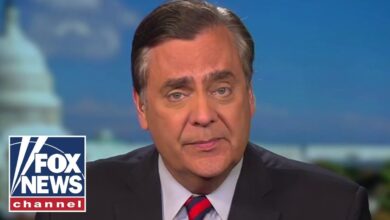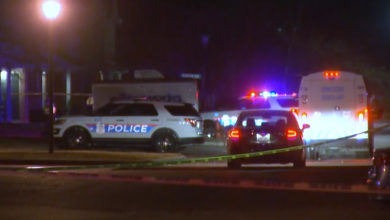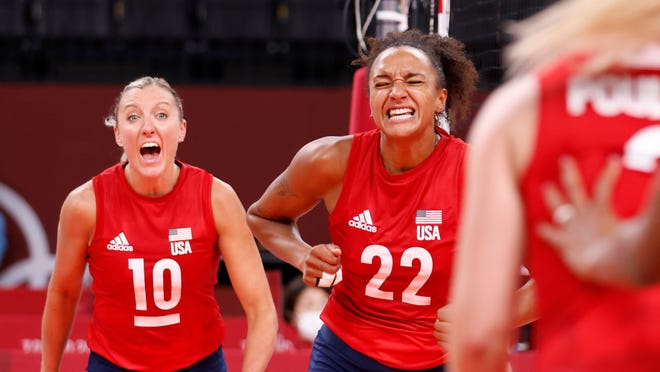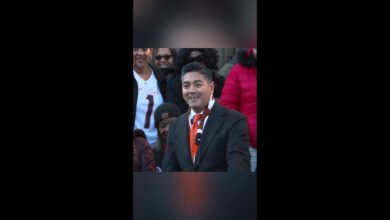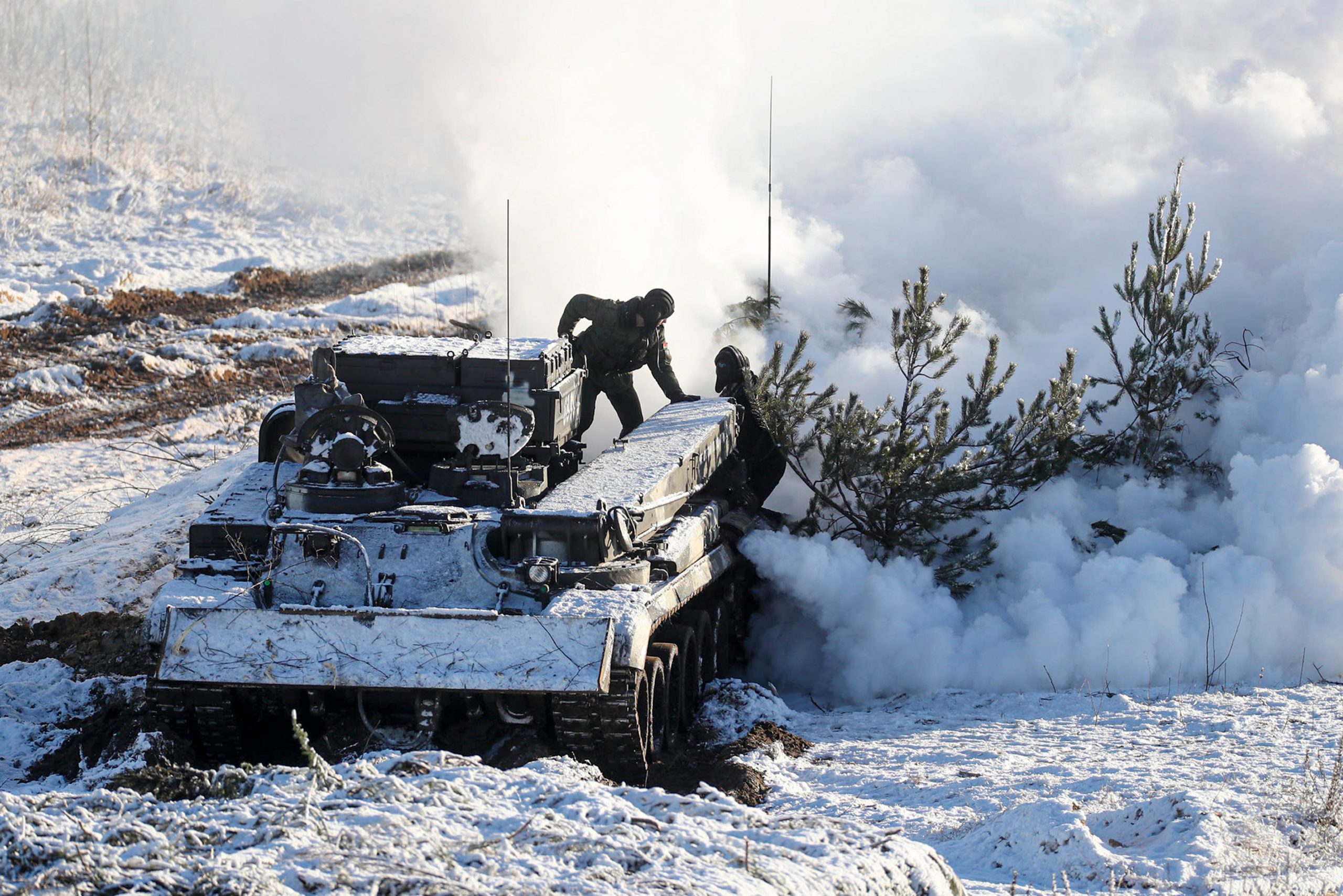

- In a long speech on Russian state TV, Putin rejected the idea of Ukrainian nationhood.
- The Russian president directly threatened pro-democracy activists and civil servants.
- His remarks came as Biden met with advisers at the White House on the crisis in Ukraine.
Following a lengthy speech on Russian state TV, Russian President Vladimir Putin signed decrees that recognized the "independence and sovereignty" of two eastern Ukraine provinces, Donetsk and Luhansk.
In his address, Putin rejected the idea of Ukrainian nationhood, calling it “madness” that the country had independence and claiming incorrectly that the country was only the product of power-brokering during the beginning of the Soviet Union.
“We have every reason to say it’s Bolsheviks and Vladimir Lenin that created Ukraine,” Putin declared, arguing that “modern Ukraine was completely created by Russia.”
Putin directly threatened pro-democracy activists and civil servants who had led the pro-democracy push in the country after the 2014 revolution ousting a pro-Russian government.
"We know their names and we will find them and bring them to justice,” he said.
Putin claimed, without evidence, that Ukraine was preparing to develop its own nuclear weapons that could threaten Russia.
Ukraine had been an independent country and a member of various imperial blocs, including the Russian empire, for centuries before becoming a member state of the Soviet Union during the 20th century. Historians are in broad agreement that there has long been a linguistic and cultural Ukrainian identity distinct from Russia.
A recognition of Donetsk and Luhansk as independent states has major implications. The Russian-backed rebels fighting the Ukrainian military there do not control all the territory they claim. Russian recognition of the full claim sets the groundwork for military support into Ukrainian territory.
More:The enigma of Vladimir Putin: What do we really know about Russia's leader?
It is unclear if increased Russian support for the would-be Donetsk People’s Republic and Luhansk People’s Republic would constitute a Russian invasion of Ukrainian territory that would trigger severe sanctions from the U.S. and European Union. Russia has supported separatists in the region and directly sent troops on the ground to fight in those provinces since instigating conflict there in 2014.
President Joe Biden, who had nothing on his public schedule for Presidents Day, spent the holiday weekend meeting with members of his national security team as Russian troops ratcheted up military drills at Ukraine's borders.
Putin's televised remarks came as Biden met with members of national security team at the White House Monday. Vice President Kamala Harris, Secretary of State Antony Blinken, Defense Secretary Lloyd Austin, Homeland Security Secretary Alejandro Mayorkas, and General Mark Milley, chairman of the U.S. Joint Chiefs of Staff, were also in attendance, according to a White House official who spoke on condition of anonymity in order to discuss details of the meeting. The president is also being regularly briefed on developments on the unfolding crisis in Ukraine, according to a White House official.
The White House said Sunday that Biden agreed "in principle" to meet with Putin after Secretary of State Antony Blinken's scheduled meeting with his Russian counterpart on Thursday, provided that Moscow does not invade Ukraine. It was unclear whether Putin's expected recognition of the independence of the breakaway regions of Ukraine would change plans for those meetings.
A U.S. official said such a move by Putin would be “condemnable.”
“If carried out, this would again result in the upending of the rules-based international order, under the threat of force,” Michael Carpenter, the U.S. ambassador to the OSCE, told a special session of the organization in Vienna, according to the Associated Press.
Josep Borrell Fontelles, High Representative of the EU for Foreign Affairs, reacted swiftly, calling Putin's action "a blatant violation of international law, the territorial integrity of Ukraine and the Minsk agreements."
More:Ravaged by ongoing war, people in Ukraine's Luhansk region want the shooting to end
Sullivan: Russian attack would be 'major'
Earlier Monday, U.S. national security adviser Jake Sullivan again warned that Russian forces are mobilizing for an impending, bloody invasion of Ukraine. That came less than a day after Biden agreed "in principle" to meet with Putin should Russia not invade.
“All signs look like President Putin and the Russians are proceeding with a plan to execute a major military invasion of Ukraine," Sullivan said Monday on ABC News. Over the past 24 hours, Russian forces have been "getting in position to attack.”
Sullivan told NBC News' "Today" the Biden administration is working on dual tracks, ready to "respond decisively" in case of invasion yet ready "to settle this peacefully."
More:Is Russia going to invade Ukraine? Satellite images show the latest Russian troop movements
Macron tried to broker a summit between Biden and Putin in a series of calls over the weekend. His office said both leaders “accepted the principle of such a summit,” to be followed by a broader summit meeting involving other “relevant stakeholders to discuss security and strategic stability in Europe.”
U.S. Secretary of State Antony Blinken and Russian Foreign Minister Sergey Lavrov were set to lay the groundwork for the summit when they meet Thursday.
The summit announcement followed a flurry of calls by Macron to Putin, Biden and also British Prime Minister Boris Johnson and Ukrainian President Volodymyr Zelenskyy.
More:'Shields up': Biden administration moves to protect U.S. targets from Russian cyber attack
Kremlin spokesman Dmitry Peskov said Monday that Putin and Biden could meet if they consider it necessary, but emphasized that “it’s premature to talk about specific plans for a summit.”
"When President Macron asked President Biden yesterday if he was prepared in principle to meet with President Putin if Russia did not invade of course President Biden said yes," Sullivan said.“The meeting is possible if the leaders consider it feasible,” he said in a conference call with reporters.
Contributing: Courtney Subramanian, USA TODAY; The Associated Press
Follow Matthew Brown online @mrbrownsir.

